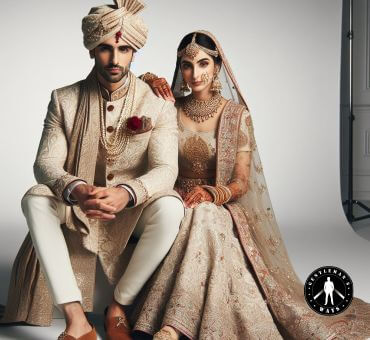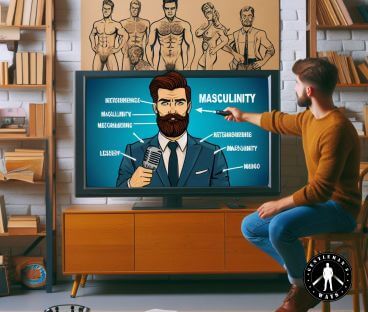Last updated on July 4th, 2024 at 03:05 pm
In navigating the subject of masculinity, questions arise, especially now that masculinity itself is in controversy. Here are frequently asked questions about masculinity.
Addressing common queries can promote understanding and healthy discussions on masculinity.
When it comes to discussing topics such as societal norms, gender roles, and personal identity, emotions are high with different opposing opinions, or against.
From inquiries about the definition of masculinity to queries about its evolution in modern times, this collection of frequently asked questions about masculinity serves as a gateway to deeper comprehension and appreciation of the many opinions of masculinity.
Questions About Masculinity

1. How Does Society’s Definition of Masculinity Impact Men?
Society’s definition of masculinity influences men’s behaviours, emotions, and identities.
Expectations often dictate that men should be strong and dominant, leaving little room for vulnerability or sensitivity.
This pressure to conform can lead to feelings of inadequacy, stress, and isolation when men fail to meet these standards.
Moreover, rigid gender norms limit self-expression and hinder authentic connections with others.
Men may struggle to seek help for mental health issues or express emotions, fearing they will be perceived as weak.
Of course, society’s narrow definition of masculinity can impede personal growth, and mental well-being, including healthy relationships.
2. Can Masculinity be Toxic?
Another frequently asked question about masculinity is if masculinity could be toxic.
Masculinity can indeed be toxic when it is characterized by traits such as aggression, entitlement, dominance, and repression of emotions.
These toxic values and beliefs can lead to harmful attitudes towards women, other genders, and even towards other men who do not conform to traditional masculine norms.
Toxic masculinity can also result in violence, misogyny, and a lack of empathy towards others.
3. How Does One’s Culture or Background Influence Their Perception of Masculinity?

Another question people ask about masculinity is how culture or background influences the perception of masculinity.
Certainly, your culture or background greatly influences your perception of masculinity.
Cultural norms and values dictate what it means to be masculine in a society.
For example, some cultures may value physical strength and dominance as masculine traits, while others may prioritize emotional intelligence and nurturing qualities.
Additionally, family dynamics, religious beliefs, and societal expectations all play a role in shaping an individual’s understanding of masculinity.
This can lead to variations in how masculinity is defined and expressed among different cultures and backgrounds.
Of course, one’s perception of masculinity is deeply rooted in the cultural context in which they were raised.
4. Are there Different Types of Masculinity?
Yes, various types of masculinity can be culturally, socially, and personally constructed.
Some common types include traditional masculinity, which emphasizes toughness, dominance, and emotional stoicism.
There is also progressive or positive masculinity, which challenges traditional gender norms and embraces vulnerability, empathy, and inclusivity.
In addition, there are variations based on race, sexual orientation, and other intersectional identities that shape a man’s experience of masculinity.
5. How Can Individuals Challenge Traditional Notions of Masculinity?
Men can challenge traditional masculinity by promoting self-awareness and questioning societal expectations.
They can reject harmful stereotypes that limit emotional expression and enforce rigid gender roles.
When vulnerability, empathy, and equality are encouraged, men can redefine masculinity to be inclusive and empowering for all genders.
They can promote healthy communication, respect for diversity, and dismantling of toxic behaviours.
By leading by example and advocating for positive masculinity, men can create a more inclusive and compassionate society where everyone can feel free to express themselves authentically, regardless of gender norms.
6. What Role do Media and Pop Culture Play in Shaping Ideas of Masculinity?

Media and pop culture play a significant role in shaping ideas of masculinity by portraying certain characteristics and behaviours as ideal for men.
These mediums often promote traditional stereotypes of masculinity, such as strength, dominance, and emotional repression.
Through movies, television shows, advertisements, and social media, audiences are constantly exposed to images and narratives that reinforce these norms.
This can lead to pressure on men to conform to these ideals, perpetuating harmful societal expectations and limiting the acceptance of a broader range of expressions of masculinity.
Related: What Toxic Masculinity in Relationships Look Like
7. How does Masculinity Intersect with other Aspects of Identity, Such as Race and Sexuality?
Masculinity intersects with race and sexuality in complex ways, shaping how individuals navigate their identities.
For men of colour, the intersection of race and masculinity can lead to unique experiences of discrimination and stereotyping.
Also, how society views masculinity can impact individuals’ experiences of sexuality, with traditional ideals of masculinity often limiting the expression of non-heteronormative identities.
This intersectionality highlights the importance of recognizing the complexities of identity and the need for more inclusive and accepting societal norms that allow individuals to fully embrace and express their multifaceted identities.
8. What Impact does the Pressure to Conform to Masculine Norms have on Mental Health?
The pressure to conform to masculine norms can have a detrimental impact on mental health.
Men may feel pressured to suppress their emotions, leading to feelings of isolation and loneliness.
This can contribute to higher rates of depression, anxiety, and even suicide.
The fear of not meeting societal expectations of masculinity may also prevent men from seeking help for mental health issues, further exacerbating the problem.
Yes, conforming to rigid masculine norms can harm mental well-being and prevent men from seeking the support they need.
9. How Can Men be Allies in Promoting Healthy and Inclusive Concepts of Masculinity?
Men can be allies in promoting healthy and inclusive concepts of masculinity by challenging traditional stereotypes and norms that perpetuate toxic masculinity.
They can actively listen to and support men who do not conform to these stereotypes and advocate for gender equality.
Men can also mentor and educate other men on the importance of respectful and non-violent behaviour towards themselves and others.
By working together to dismantle harmful beliefs and practices, men can create a more supportive and inclusive environment for all individuals to express themselves authentically.
Final Word from Gentsways
The concept of masculinity is complex and often misunderstood.
Through examining the above frequently asked questions about masculinity, it is evident that society’s expectations and stereotypes play a significant role in shaping perceptions of what it means to be masculine.
It is important to recognize that masculinity is not limited to traditional notions of strength and dominance, but rather covers a diverse range of characteristics and behaviours.
By challenging these ingrained beliefs and encouraging open dialogue, we can work towards creating a more inclusive and accepting understanding of masculinity.
References:
- http://themaneffect.com/thejourney/15-questions-and-answers-about-masculinity
- https://www.linkedin.com/pulse/commonly-asked-questions-mens-mental-health-each-person
Pyo Merez is a men’s lifestyle enthusiast and writer about the gentleman’s place and impact on society. Raised by a distinguished gentleman dad, he offers unique insights into how the mind of a gentleman works and how societal norms shape gentlemen’s identity and vice versa.
Through his insightful articles, Pyo taps into the depths of gentleman culture to provide perspectives on etiquette and manners in modern society.

